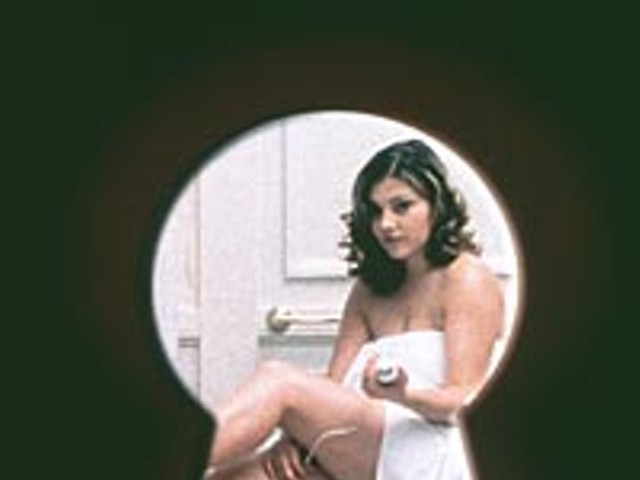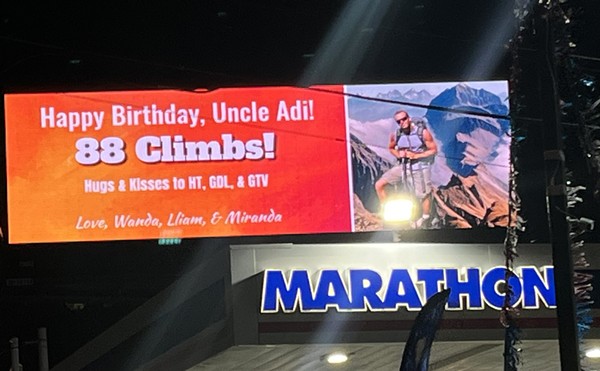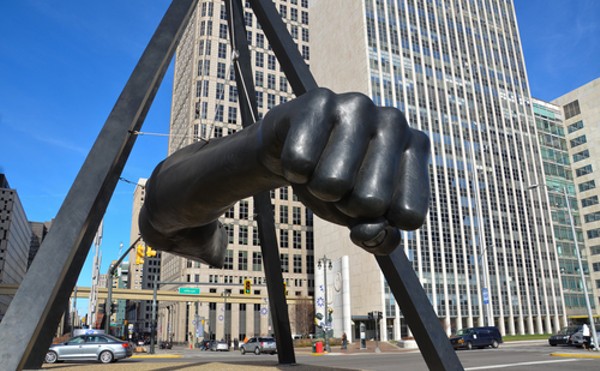“The good news is that the festival’s going to happen,” says Ford Detroit International Jazz Festival director Frank Malfitano in his Music Hall office. “And I don’t think that was a given. As a matter of fact, somebody called me the other day and said they were laying odds and taking bets that it wasn’t going to happen.”
For fans of the 21-year-old Labor Day weekend get-together, these are shocking words from the new head programmer, on board for just eight months now:
“I don’t know if it’s a secret or not, but the festival has experienced some severe financial difficulty, as recently as this past September. As a result, there’s a huge deficit that we’re trying to erase immediately.”
Here’s the wake-up call that few in the audience expected. An institution we thought would go on forever, one of North America’s major jazz showcases (and always free) has been drifting dangerously close to the rocks of oblivion. For those without an inkling of the annual programming effort, the bottom line (yes, baby, there’s one here too) can be discouraging:
“I have more of a musician’s and an artist’s temperament and mentality, but I also have a foot rooted in business — because I know that if this doesn’t run properly in a business sense, it’s not going to work and it’s not going to be around. I don’t think people realize how close we came to pulling the plug, and how many times this thing has been on the verge of extinction. Fiscally, it has not been healthy. But its longevity and continuity are my No. 1 priority — to do what I can to make sure this festival’s going to be around for the next 10 years.”
When it comes to the immediate future, this year’s program and current state of affairs, Malfitano is poetically pragmatic:
“If I could use a sports metaphor, this is a rebuilding year. I think the patient’s going to be well and make a complete recovery, but it’s going to take a little time to get there. As a consequence, a lot of the innovations and new features that we might want to give to the festival probably are on hold, at least temporarily.”
But he doesn’t mind us sneaking a peek at the long-range plan:
“We want to have a riverboat with live jazz on it, going up and down the Detroit River — and a jazz film series, especially if the weather’s inclement — it’s all part of jazz education, a complete cultural experience. Somebody suggested having dance floors down near the amphitheater stage so we can create dance nights. Somebody else talked about an arts and crafts area, where we could bring in some of the finest jazz artisans, visual artists, sculptors and photographers, kind of a jazz marketplace. All of those things make for a complete festival experience. When you go to Montreal, New Orleans, the Hague or any of the other great jazz festivals of the world, there are libraries (where you can get used and out-of-print jazz books, where you can buy jazz films and videos) and CD stores. So the expansion into those areas which really nurture the development of an audience and help facilitate jazz education are things that we’ll be looking at.”
But Malfitano has his mind focused on another bottom line, that of serving the community:
“First you have to serve jazz, the art form. Then you serve the Detroit jazz community, the musicians who keep this music alive year-round and pay their dues — it should be a celebration for them, of who they are and what they contribute to this community as artists. And yet you have to serve the audience, the sponsors … those are things I have to always be conscious of without making artistic compromises … So when I talk about dreams deferred, they’re only going to be on hold temporarily, until we can find the money or sponsorship to underwrite them.”
Malfitano, a recent transplant from Syracuse, N.Y., and parts east, has embraced his new home and mission: “Detroit’s a great city. I think it’s had a great festival, and I want to do whatever I can to make it even greater. Whatever changes will transpire will be for the preservation, the fiscal solvency and well-being of the event. In other words, I’m not about to come in and put my stamp or signature on things and make changes for the sake of making changes. There’s a line of demarcation here: For maybe 15 years, it was Detroit Renaissance’s festival and then for five years it was the Jim Dulzo era — and Jim did a great job. It’s a formidable task, a huge challenge.”
The Hot & the Bothered was written and edited by George Tysh. E-mail him at [email protected]




